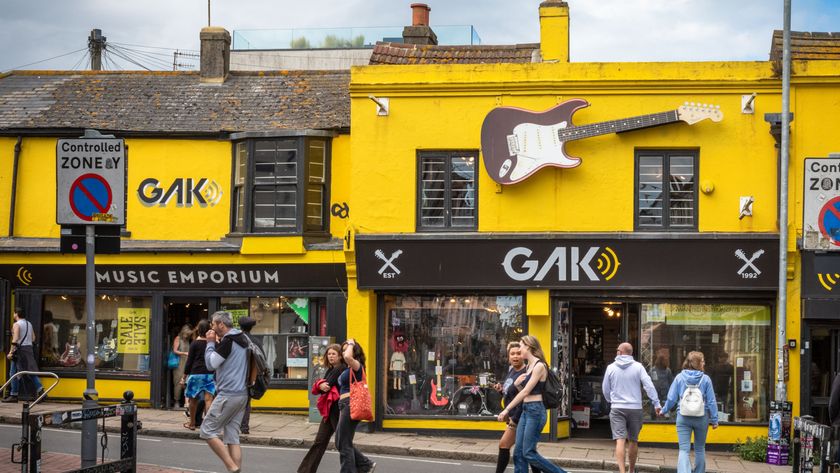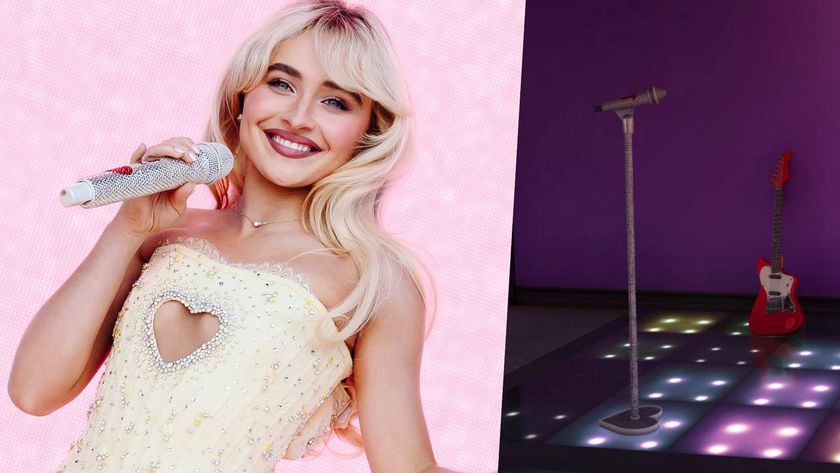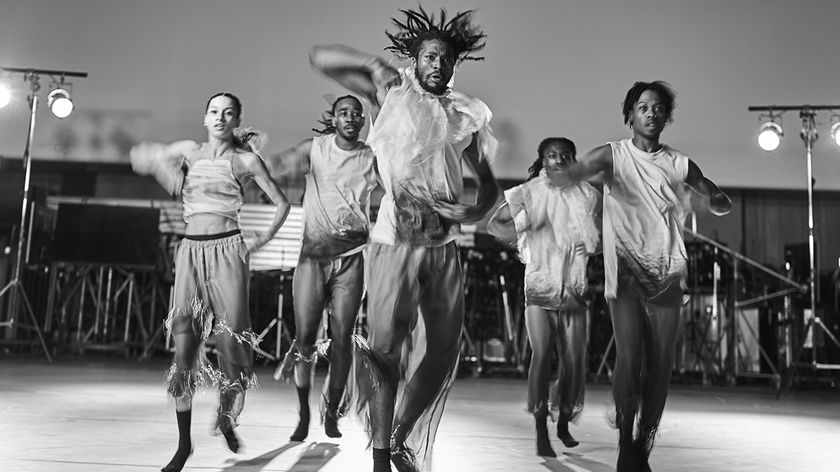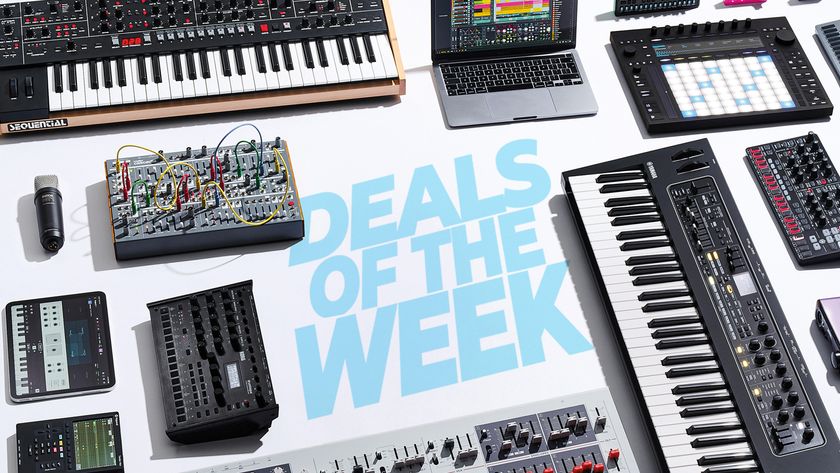"It's always going to be very biased towards the data it's trained on" – Red Hot Chili Peppers and Adele mixing engineer Andrew Scheps shares his views on AI machine learning, and his tips
"By definition machine learning can't create new stuff. It's amalgamating a gigantic amount of existing stuff"
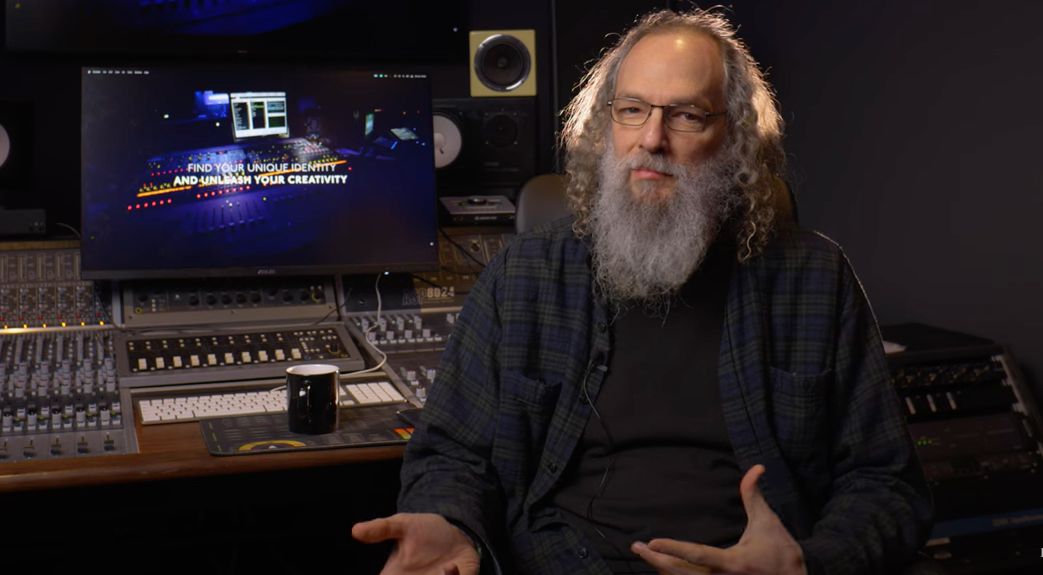
Three-time Grammy Award-winning mixing engineer Andrew Scheps worked on Adele's 21 and RHCP's Stadium Arcadium (both of which is won Grammys for) and has mixed for Black Sabbath, Metallica, Beyoncé, Lady Gaga, Neil Diamond and many, many others. So when he shares his insight, we want to listen – and he offered some great tips, as well as some very interesting views on emerging AI technology, in this recent chat with London's Institute of Contemporary Music Performance.
Scheps' outlook has come from a journey of growing clarity: "My job as a mixer is to shape it sonically and just try to amplify what's great about what's already there," he reflects. "But I think the creative side is sort of deciding which things to highlight and then how to do it."
"I think the journey has just been understanding more and more that's all that matters, and all the rest of it along the way doesn't matter," he adds. "It doesn't matter that it's a good sounding mix. If it feels great, it is great. And if it doesn't, it doesn't matter how good or bad it sounds. Nothing matters if it's not right and it's not about the music."
Scheps believes it's important to learn your history when it comes to production: "who did what and who worked with whom." This desire to learn from his predecessors led to a whole lockdown series called Andrew Talks To Awesome People that saw him in conversation with luminaries including John Leckie, Sylvia Massy and Joe Barresi.
If you're in a gig that requires you to know Pro Tools, you can't just say, 'Well I'm a Logic guy'
"What was great was a lot of them talked about their mentors," reflects Scheps. "Even Al Schmidt [who won 20 Grammys for his work with artists before his death in 2021] talking about how he started, and he started in the '50s. So to be able to go back basically to the beginning of commercial record production and get that story, and also how many branches of it there are."
Scheps believes learning who made not just your favourite records, but other landmark releases outside your comfort zones, is important in any journey as a producer and engineer.
This grounding has seen him working with top metal and pop acts. "It's hugely important to listen widely," he notes. "When you're younger you gravitate towards a certain genre of music because it's very much a social thing – you've found your tribe and you love that music and you hate everything else. But as you get older and that is less of a social pressure, you can start to analyse what you like."
Get the MusicRadar Newsletter
Want all the hottest music and gear news, reviews, deals, features and more, direct to your inbox? Sign up here.
Scheps notes here will be traits that emerge – the things you like in music, such as minor of major key songs. And these can cross genres, as well as things you hate. "When you realise that then you can really start exploring," he says. "And in that exploration you'll learn about production and mixing details. But this grounding of musical research is obviously just the beginning.
"You have to know your tools inside out," Scheps adds. "If you're in a gig that requires you to know Pro Tools, you can't just say, 'Well I'm a Logic guy'. Because you're there to use Pro Tools and you need to know it really, really well otherwise you're just slowing down the creative process. So know the technical side so well that you can then be creative.
"The second thing is to try and work with people from the same point in their career as you – and I've said this a million times before but it's really important. If you're just starting out, find bands that are just starting out. And then you get to learn together and everybody's cool and they're on the same page – there's a lot of conversations you don't have to have. And you're also not going to be at home beating yourself up about not getting work you're not actually ready for. And there's nothing that will make up for practice.
"I don't know about the Malcolm Gladwell 10,000 hours thing – I don't know if you can put a number on it, but the more you do the better you get. I still feel that I'm not that great and things take me a long time and I completely miss things. When I listen back the next day I think, 'How the hell did I let that happen?' So that's a lifelong thing. You're never going to be like, 'Oh I've got it – now I'm good.' There are people where it seems like that but they're just more talented and it's really, really hard work. Don't give that up and keep that in mine – spend as much time as you can just doing the thing."
What always moved things forward is the thing like nothing you've ever heard before
And in the face of all that hard work and years learning on the job we now have emerging AI technology in the production realm. Scheps has a reasoned response to that that's very well considered.
"It's always going to be very biased towards the data it's trained on, so I think that the technology and some of the software that's been written is amazing – all the iZotope stuff… it's really incredible but if you try to extend it to things like songwriting… although there's some K-Pop stuff happening in that realm already.
"But any of the more creative side of it [with] mixing, mastering – there are plenty of online mastering places now that are all based on algorithms but what they're based on is someone saying, 'This is what good songs sound like when they're mastered'. But what always moved things forward is the thing like nothing you've ever heard before. Beck Odelay scared people. AC/DC Back In Black scared people, because it was new and that was what was great, and you'll never get that with machine learning. It's impossible – it goes against what machine learning is.
"So I think some of the tools are really, really incredible but I think if you let them just do their thing then the reality of, 'that thing can take your job' is true because then you just let it.
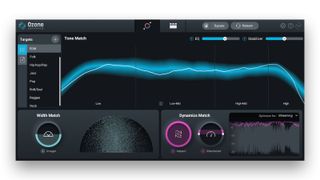
By definition machine learning can't create new stuff
But Scheps is not dismissive of emerging machine learning technology – on the contrary, he believes it can help teach tomorrow's mixers.
"Where I think it's really helpful, especially for young people, is to use something like [iZoptope] Ozone – let it listen to your track, suggest a bunch of stuff and then rip that apart. See what it's doing, every little thing, and try reordering stuff. See what you like and what you don't like and train yourself to do what it did. And it's an amazing teaching tool, but in terms of throwing a bunch of notes at a computer and having it make a record for you, I would argue it's just going to be a bunch of boring records. It's easy for me to say machine learning and sort of discount it but when you think about the data set these things are being trained on now, they are the entire output of everybody on the planet since things could be recorded and document.
"ChatGPT is an easy thing to reference because it's just there any everybody has heard of it now and it's exploded on the scene," offers Scheps. "But if you ask it to write an essay for you, it will be different every time but it's never going to come to a conclusion that no one else has thought of. That will never ever happen. So to be able to generate music is really interesting and I think it has great applications, like in the gaming world with composers – to be able to sow seeds of music and then have that generate a dynamic score while you're playing a game. The possibilities for that kind of thing are really incredible, but if you think you're going to get new creative outcomes I'd say there's a bug. Because by definition machine learning can't create new stuff. It's amalgamating a gigantic amount of existing stuff."
Then he smiles: "And I'll be proven wrong!"
Check out the full interview near the top of the page.



Rob is the Reviews Editor for GuitarWorld.com and MusicRadar guitars, so spends most of his waking hours (and beyond) thinking about and trying the latest gear while making sure our reviews team is giving you thorough and honest tests of it. He's worked for guitar mags and sites as a writer and editor for nearly 20 years but still winces at the thought of restringing anything with a Floyd Rose.
